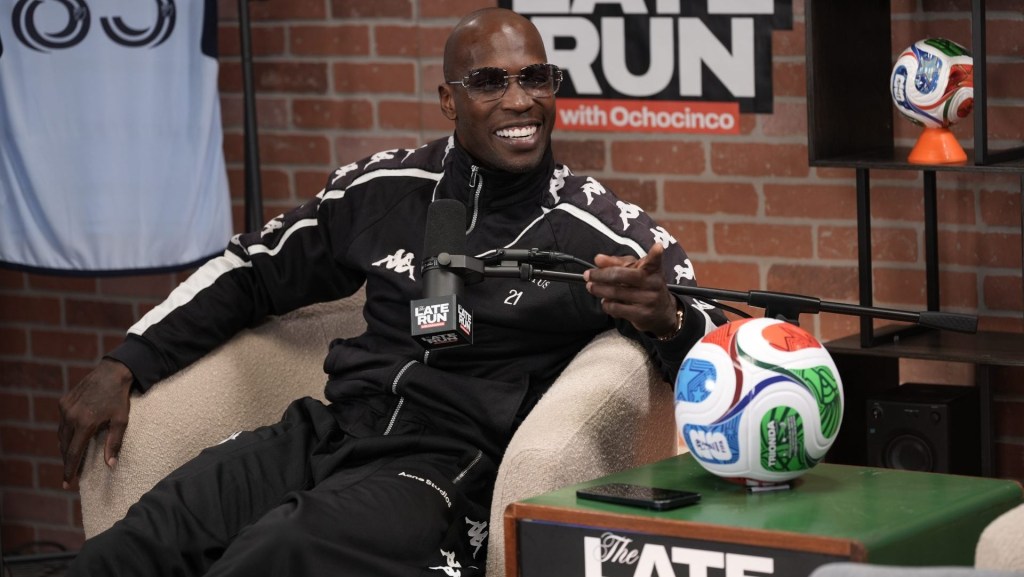PALM BEACH, Fla. — The National Football League hasn’t formally decided whether to opt out of its domestic media rights contracts four years early, but it’s all but certain to happen as data continues to come in, strongly bolstering its case to do so.
The NFL’s current rights deals with Amazon, CBS, ESPN, Fox, and NBC run through the 2033 season, but the league has opt-out provisions with most of them that allow it to exit instead after the 2029 season, and do so with ESPN a year later. Before Super Bowl LIX last month, commissioner Roger Goodell said the opt-outs were “incredibly valuable,” and that their deals are “undervalued” given the NFL’s status as by far the most popular programming in all of U.S. television, regardless of genre.
Since then, the Super Bowl itself became the most-watched program ever on U.S. television, and Major League Baseball is parting from ESPN and is now pursuing even greater riches for those national rights. Those data points, plus other major sports rights deals for entities such as the National Basketball Association and College Football Playoff add support for the league’s position.
Sources said the opt-outs have become a virtual lock, even if NFL EVP and chief media and business officer Brian Rolapp isn’t confirming it.
“All that data is positive for the value of sports media in general, and for the NFL specifically,” Rolapp said in response to a Front Office Sports question about the impact of recent factors such as the Super Bowl LIX viewership. “I don’t think it’s a mystery that as media fragments, there are very few programming options that aggregate large audiences. Sports are at the top there, and the NFL is at the top of that.
“How we think about the opt-outs, we haven’t made any decisions, but they are there because in a media environment that is changing rapidly, we want to make sure we have the flexibility to make any, all, or no changes at all. We continue to monitor the landscape and we continue to do the thinking that would be necessary as we go forward,” he said.
The league’s rights holders, of course, are also well aware of these forthcoming opt-outs.
“The NFL is our largest partnership. They have an incredible product, and we’ve had a deep relationship with them for a very long time,” Fox executive chair and CEO Lachlan Murdoch said last month at a Morgan Stanley conference. “So, we see this ‘amend and extend’ provision, which is still some years out, as an opportunity for us to, frankly, deepen our relationship with the NFL.”
Getting Flexible on Flexing
NFL team owners, meanwhile, approved an extension of flexible scheduling rules to allow Sunday games to be moved to Amazon’s Thursday Night Football on a permanent basis with 21 days’ notice.
Previously, the shifts were available with 28 days’ notice, but the reduced window gives the league additional time to optimize broadcast placements. It also further highlights the Amazon showcase as the streaming property continues to draw audiences more like its linear counterparts. Other standard rules around flexible scheduling will continue to apply, and league officials promised a careful application of the more liberalized approach.
The league also acknowledged that a shift from a Sunday afternoon game to Thursday is far more disruptive, particularly for attending fans, than simply going from Sunday afternoon to prime time on NBC’s Sunday Night Football.
“We’re going to be very judicious when and how we do this, but in those instances where it arises, it’s very valuable to us,” said NFL Media EVP and COO Hans Schroeder.







![[Subscription Customers Only] Jun 15, 2025; Seattle, Washington, USA; Botafogo owner John Textor inside the stadium before the match during a group stage match of the 2025 FIFA Club World Cup at Lumen Field.](https://frontofficesports.com/wp-content/uploads/2026/02/USATSI_26465842_168416386_lowres-scaled.jpg?quality=100&w=1024)
![[Subscription Customers Only] Jul 13, 2025; East Rutherford, New Jersey, USA; Chelsea FC midfielder Cole Palmer (10) celebrates winning the final of the 2025 FIFA Club World Cup at MetLife Stadium](https://frontofficesports.com/wp-content/uploads/2026/02/USATSI_26636703-scaled-e1770932227605.jpg?quality=100&w=1024)








